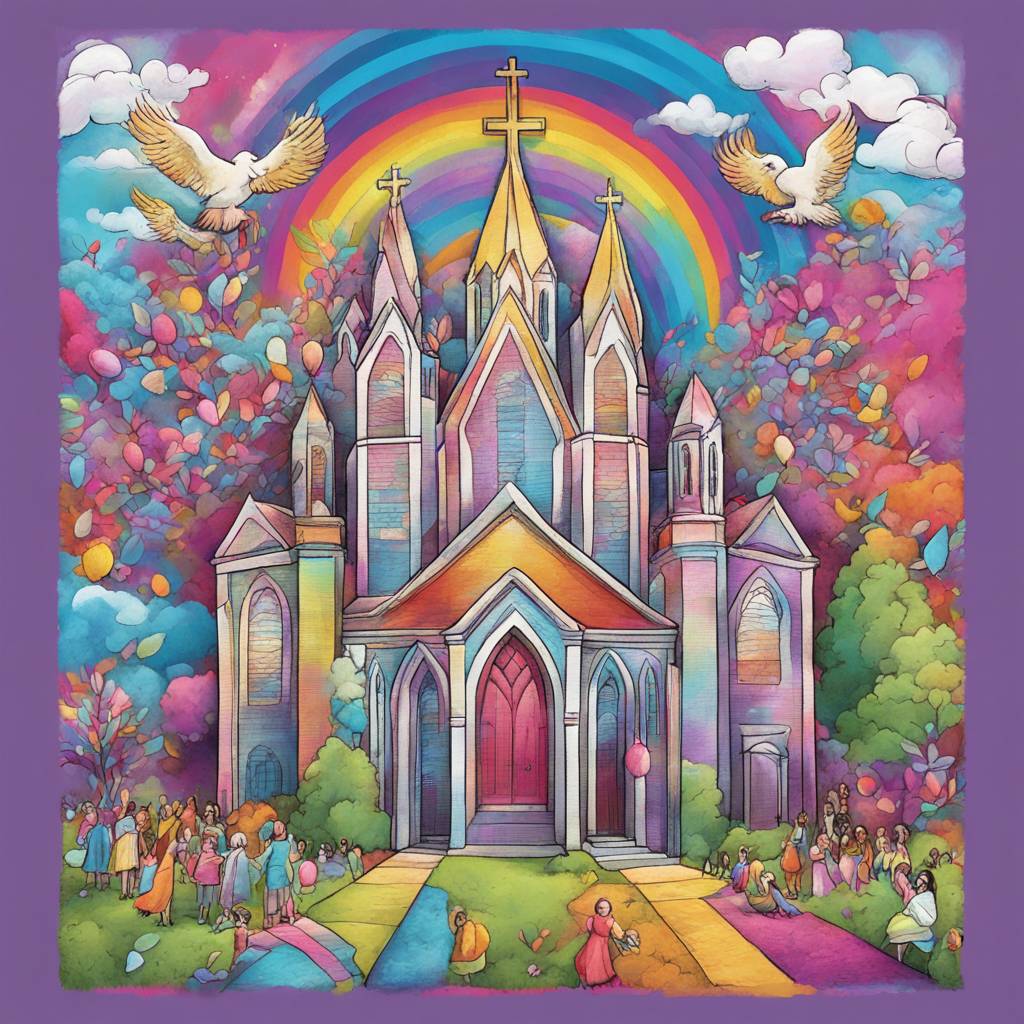A few liberal churches, religious organizations, and LGBTQ+ groups are excited that Easter Sunday in 2024 coincides with Transgender Day of Visibility on March 31. This unique occurrence has sparked various celebrations and activities across these groups. Some churches are integrating transgender themes into their Easter Sunday services, symbolizing a message of love transcending hate. The United Church of Christ’s minister for Gender and Sexuality Justice Ministries, Rachael Ward, emphasized the importance of LGBTQ+ individuals experiencing a “resurrection moment” of love and acceptance.
The Calgary Unitarians in Canada are hosting a drag show as part of their Easter Sunday service to show support for transgender individuals and protest against current political climates. They aim to explore the concept of transformation in society, complete with drag queen performances, story time, and other engaging activities. Similarly, the Unitarian Universalist Church of Palo Alto in California is planning an exhibit recognizing transgender and nonbinary people in celebration of Easter and Transgender Day of Visibility. Church leaders have highlighted the importance of embracing authenticity and new beginnings in their intergenerational Easter service.
Various publications and organizations, such as Pride Source, have encouraged their audiences to partake in Easter Sunday celebrations in queer-affirming churches to commemorate the Transgender Day of Visibility. President Biden issued an official proclamation declaring March 31 as the Transgender Day of Visibility, emphasizing the courage and contributions of transgender Americans. While this proclamation received support from many, there was backlash from social media users, including Republican lawmakers who believe transgender ideology goes against traditional Christian views.
Traditional Christians typically view transgender ideology as conflicting with their beliefs, with Pope Francis warning about the dangers of gender ideology. He has expressed concerns over how this ideology blurs distinctions between men and women. This clash in viewpoints has led to debates and disagreements among religious and non-religious communities regarding transgender rights and acceptance. Despite these tensions, many organizations continue to advocate for transgender visibility and inclusion, especially within the context of religious observances like Easter Sunday.
As the Transgender Day of Visibility coincides with Easter Sunday in 2024, many religious and LGBTQ+ groups are engaging in innovative and inclusive celebrations. This alignment presents a unique opportunity to highlight the experiences of transgender individuals within various faith communities. With a focus on love, acceptance, and authenticity, these organizations aim to create spaces that welcome all individuals, regardless of gender identity. The intersection of these important observances serves as a reminder of the ongoing conversations surrounding gender inclusion and acceptance within both religious and secular contexts.


